As dog owners, we have been conditioned to associate a change in appetite with a wide variety of health concerns.
However, there are also many non-medical reasons that an old dog won’t eat including changes to their schedule or stress from the loud noises of a nearby construction site.
In this article, we are going to look at how to identify why your senior Dachshund won’t eat, ways to encourage their appetite, and when you should contact a veterinarian.
How Long Can a Dog Go Without Eating?
Just as with people, no two dogs are identical.
This means that there is no set number of days that you can guarantee a dog can go on a hunger strike without there being any problems.
The number of days that are considered safe for your dog to skip their meals will vary depending on their age, activity level, and overall health, among other things.
Most veterinarians will agree that a couple of days without food is often nothing to be concerned about.
However, with a senior Dachshund that may have other underlying health issues or age-related concerns, it’s better to address the problem as soon as possible.
One of the biggest concerns if your dog isn’t eating is whether or not your dog has stopped drinking as well.
It’s important to make sure your dog hasn’t stopped drinking as well so they don’t become dehydrated.
Dehydration can set in very quickly in an old dog, particularly if he isn’t well.
Dehydration can lead to severe illness and even, sadly, death.
That sounds scary but it’s important you realize how serious dehydration can be for your Dachshund, so if your dog is not eating and not drinking, call your vet right away.
What Causes Loss of Appetite in Dogs?
There are many different reasons that could explain why an old dog stopped eating. The only way to identify the cause is through a process of elimination.
If your senior dog won’t eat, here are a few important reasons to consider.
Changes in environment or schedule
Take a step back and look at your dog’s home environment. Have there been any changes?
This could range from simply redecorating and moving his dish to a whole new house.
Many dogs have difficulty with change, especially as they are living out their golden years and/or have canine cognitive dysfunction (doggy dementia).
If you’ve rearranged the house and notice that your old dog stopped eating, try moving their bowl back to its original location.
Are there new sounds that could be upsetting your dog, like a construction next door or even loud renovation work within your house?
Any new change in your house or surroundings can affect your dog’s appetite.
Has anyone new joined the family or moved into the house?
Even something as simple as switching your dog to a new bowl or changing the mat under your dog’s dishes can trigger some dogs to lose their appetite.
Emotional reasons your old dog may not eat
In addition to the stress from unwanted change, as mentioned above, there are other emotional reasons that may trigger a loss of appetite in your dog.
Has your dog recently experienced a loss?
Dogs grieve the loss of their companions, including human companions, other dogs, and even other animals in the home that they have had the opportunity to bond with.
If you have recently had a loss in the family, your dog may be too upset to eat at this time.
Other emotions that can lead to a temporary loss of appetite include fear, anxiety, stress, or even high levels of excitement.
Reasons related to your dog’s food
Did you recently change something about your dog’s food?
A common reason for an elderly dog not eating is simply the fact that they dislike the food available.
This could happen from changing the brand of your dog’s food, switching to a different flavor or formula, or even changing the way you serve their meal (like serving food cold that you previously heated up).
Even food lovers might not like the new food you introduce to them.
Dogs that are usually food-driven may even turn their nose up at a new food if it is upsetting their stomach.
If you haven’t changed their food, that could also be the trigger as some dogs become bored of eating the same kibble day after day with no change to their diet to keep it exciting.
Medical reasons your senior Dachshund won’t eat
Of course, there are also medical reasons that may explain why your senior Dachshund is not eating.
If you’ve gone through the above lists and still have no answer, it may be time to look deeper.
Common medical reasons associated with a loss of appetite include:
– Infection
– Nausea or Gastrointestinal Upset
– Side Effects of Medication
– Liver or Kidney Issues
– Pancreatitis
– Dementia
– Cancer
In some cases, your dog may be less interested in their food or have difficulty eating due to complications related to aging.
This includes mobility issues making it harder to reach their bowl, such as a bowl that’s too low for them to comfortably lean down to or an obstacle making it harder to get to the place where their bowl is kept.
Many dogs also experience a dulling of their senses as they get older.
Senior dogs might not care about food when they have a medical issue going on.
Without the strong sense of smell and taste associated with their food, it simply may not interest them any longer.
When Should I Worry About My Dog Not Eating?
If you have gone through the list above and ruled out any non-medical reasons why your senior Dachshund stopped eating, your next step should be to call your veterinarian.
When you call, be prepared to provide the following important information to help your vet determine if an emergency appointment is necessary:
- How long has it been since your dog’s last meal?
- Is your dog eating anything (treats or small bites)?
- Has your dog been throwing up? Any changes in bowel movements?
- Is your dog still drinking? If so, are they drinking more or less than usual?
- Have you made any changes to your dog’s meal?
- Are there any other behaviors or symptoms that you have noticed in addition to the change in appetite (fever, lethargy, coughing, gagging)?
If your vet deems this to be an emergent situation, they will recommend that you bring your dog in as soon as possible.
However, if they believe that this can be managed at home, for the time being, they may set up an appointment time and provide you with instructions to care for and monitor your dog until your Dachshund can be seen.
At your appointment, your vet will be able to run a series of diagnostics to better understand what is going on with your Dachshund’s health.
This will likely include taking their temperature as well as blood and urine tests.
They may order additional tests if they have reason to believe that it could be something more serious.
Bringing your dog to the vet is the best way to get their health assessed and see if there is a medical reason your Dachshund is not eating.
While you wait for the test results, your vet may provide your dog with medication to address any pain or nausea as well as an appetite stimulant to encourage them to eat.
It may take multiple appointments to reach a diagnosis if it is something more complicated. Keep an open line of communication with your vet and don’t be afraid to ask questions along the way.
How Do I Get My Dog to Start Eating Again?
If your vet has determined that there is no medical reason for your dog’s loss of appetite, here are a few tricks for encouraging your senior Dachshund to eat again.
Make their food more enticing
As we previously mentioned, your dog may have a loss of senses due to aging.
By adding something that elevates the taste or the smell of your food, you may be able to convince them that their meals are exciting once again.
This could be done by heating up their food to release the smell better, adding broth or water to create a ‘gravy’ in their food, or topping their food with other healthy options including dog-friendly fruits, vegetables, and protein sources.
Try hand-feeding your dog
If your dog is feeling ‘off’, hand-feeding may provide enough comfort to convince them to at least eat a few mouthfuls.
Often, eating an initial bit of food from your hand can help to stimulate their appetite so that they will then return to eating from their dish happily in the future.
Try a new food option
For dogs that have always been fed the same kibble, try changing it up to something new and exciting.
Mixing in some wet food with their normal kibble may be enough to entice them to give it a try.
Try changing up their food, whether that’s adding something in or giving them a new food completely.
There are many human foods that can also be used to help encourage your Dachshund to eat again, either by providing them with a bland diet to help settle an upset stomach or by adding interest to their meal in the form of a food topper.
Some dog-safe food options to consider include:
- Shredded chicken
- Plain white rice (great for upset stomachs)
- Canned pumpkin (NOT pumpkin pie filling)
- Scrambled eggs
- Tuna (in water, not oil)
- Sardines
- Cottage cheese
- Unflavored yogurt
- Mashed sweet potatoes
- Goat’s milk
- Fresh vegetables
- Blueberries
- Apples (without the core or seeds)
Adding food toppers to your dog’s existing food is a great way to change up what they are eating from meal to meal while maintaining the base nutrition that they require.
Don’t Give Up!
Realizing that your senior Dachshund is not eating can be a stressful time, compounded by the fact that finding the root cause isn’t always a fast process.
If you find yourself feeling discouraged along the way, don’t give up.
It may take a long time and a lot of trial and error to find a solution, but when you look into your Dachshund’s eyes, you’ll know that it was worth all the work.
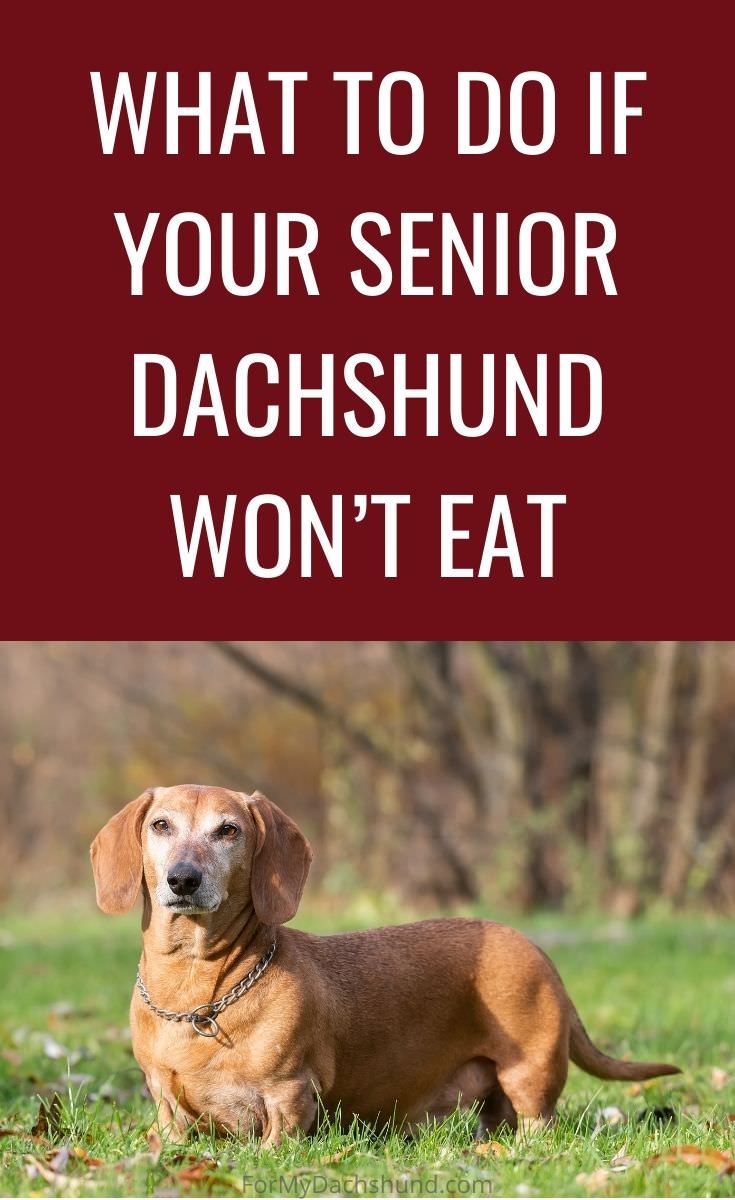
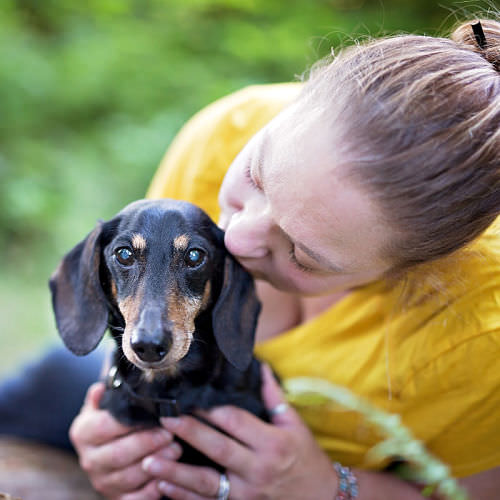
About the Author: Through her 17 years of owning and caring for Dachshunds, and almost 10 years researching and writing about them, JW has become a respected expert in the Dachshund community. Read more about her here.

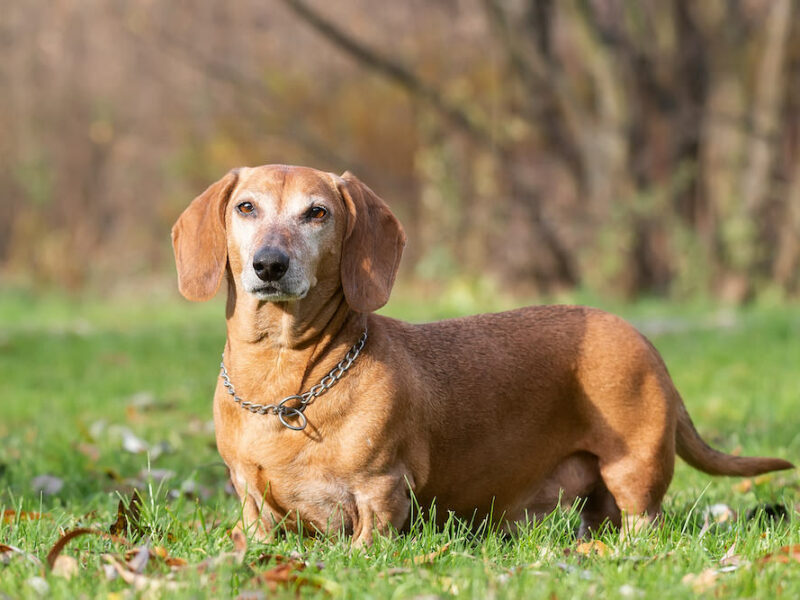




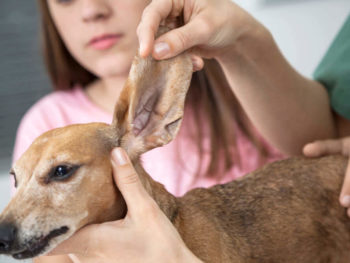

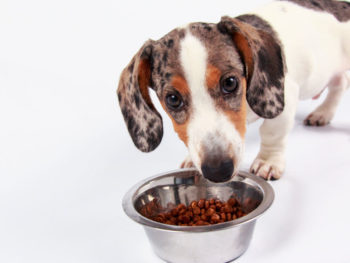
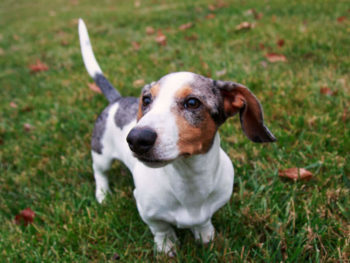
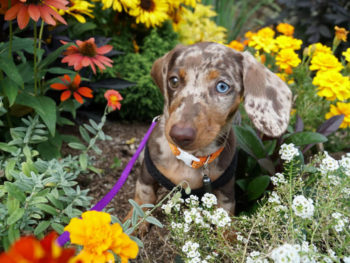

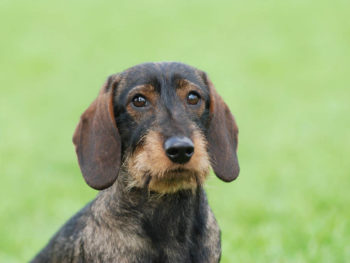

 Why is My Dachshund Puppy So Hyper? Reasons and Cures
Why is My Dachshund Puppy So Hyper? Reasons and Cures


